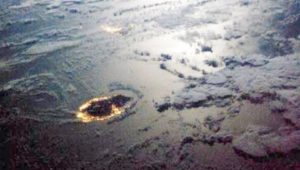
In a move that appears to have surprised the Indian government, the Indian Ocean island of Mauritius has asked New Delhi for its cooperation in establishing a civilian satellite launch centre.
The request is said to be considered with a large measure of seriousness by the Indian government, partly because it fears that if Mauritius is rebuffed it may turn to China – India’s geopolitical archrival – to establish a launch complex in the Indian Ocean, considered to be New Delhi’s sphere of strategic influence.
“Countries hardly ever share proprietary technologies like space and India is no exception,” an Indian government official told Indian newspaper Business Standard, who first broke the story, reflecting the significant legal and strategic challenges that building a launch site on Mauritius may involve.
India, however, is involved in important geo-economic negotiations with Mauritius for the creation of an offshore Indian oil reserve on the island, and a free-trade agreement. The latter negotiation may now have an added space dimension given the request from Mauritius.
The Indian Space Research Organisation (ISRO) already has a framework agreement with Mauritius, but it only covers the sharing of space science research and satellite data with the government in Port Louis, the capital city of Mauritius, rather than technology transfer and the construction of major space infrastructure such as a launch complex.
“Specifically, developing countries look to India for assistance in building up their capabilities to derive benefits of space technology. The scope of international cooperation has become wider and diverse, as ISRO has made tremendous progress in recent times,” the Indian space agency states in a written statement about its space cooperation activities.
The request from Mauritius is seen as an attempt to develop its economy to a more advanced level, with an International Monetary Fund (IMF) report stating that, “To achieve advanced economy status, the government intends to pursue an ambitious growth strategy anchored on significant public investments in infrastructure.” According to a number of sources that the Business Standard spoke with, investments in space technologies and infrastructure is seen as an integral part of this growth strategy.
Mauritius is located approximately 2000 kilometers East of the coast of Africa (and directly East of Madagascar) in the Western Indian Ocean, and sits approximately at latitude 20 degrees South of the Equator, giving it some natural geographical advantages as a launch site since satellites launched in an Easterly direction on or near the Equator can take advantage of a boost from the Earth’s spin on its axis, thus saving the amount of fuel required to place a satellite in orbit.





